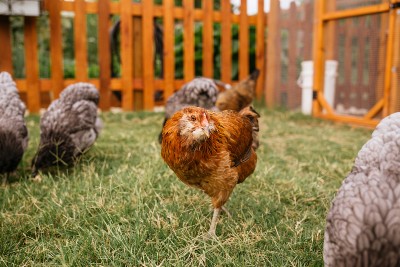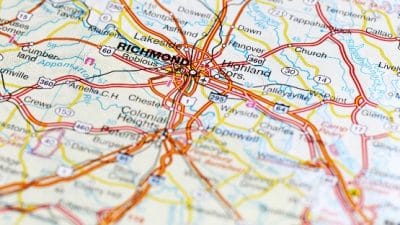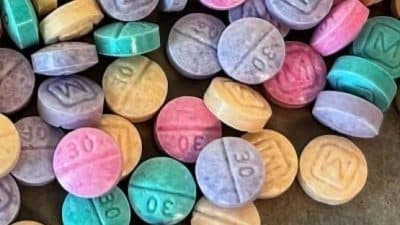
The Virginia Department of Agriculture and Consumer Services is encouraging all backyard bird owners in the state to protect their flocks from Highly Pathogenic Avian Influenza, or HPAI.
While the current HPAI strain has not been detected in a commercial flock, the virus is prevalent in the environment and may be present in migrating birds traveling along the Atlantic Flyway.
“Wild bird migrations and recent HPAI detections in wild birds and backyard non-commercial flocks confirm that HPAI remains present in our environment,” said Dr. Charles Broaddus, state veterinarian, with VDACS. “I strongly encourage all backyard bird owners to practice biosecurity measures to protect their flocks from wild birds and this virus.”
Signs of HPAI include:
- sudden death without clinical signs
- lack of energy or appetite
- decreased egg production
- soft-shelled or misshapen eggs
- swelling or purple discoloration of head, eyelids, comb, hocks
- nasal discharge
- coughing
- sneezing
- incoordination; and diarrhea.
Anyone involved with poultry production from the small backyard to the large commercial producer should review their biosecurity activities to assure the health of their birds.
The following are a few steps backyard bird owners can take to protect their flocks:
- Prevent contact between domestic and wild birds. Ensure poultry cannot access areas where wild waterfowl or vultures are present.
- Wash your hands before and after handling birds as well as when moving between different coops.
- Disinfect boots and other gear when moving between coops.
- Do not share equipment or other supplies between coops or other farms.
- Cleaning and disinfecting equipment and other supplies between uses. If it cannot be disinfected, discard it.
- Use well or municipal water as drinking water for birds.
- Keep poultry feed secure to ensure there is no contact between the feed/feed ingredients and wild birds or rodents.
- Look for signs of illness. Know the warning signs of infectious bird diseases.
- Report sick birds immediately.
If your birds are sick or dying, call a local veterinarian, cooperative extensive service, the State Veterinarian’s Office at (804) 692-0601, email [email protected], or call the USDA’s toll-free number at (866) 536-7593.
Biosecurity information to include videos, checklists, and a toolkit, is available at:
- www.aphis.usda.gov/aphis/ourfocus/animalhealth/animal-disease-information/avian/defend-the-flock-program/dtf-resources/dtf-resources.
- http://healthybirds.aphis.usda.gov
The Centers for Disease Control and Prevention considers the risk to the general public from HPAI infections to be low. The proper handling and cooking of poultry and eggs to an internal temperature of 165˚F kills bacteria and viruses, including HPAI.










